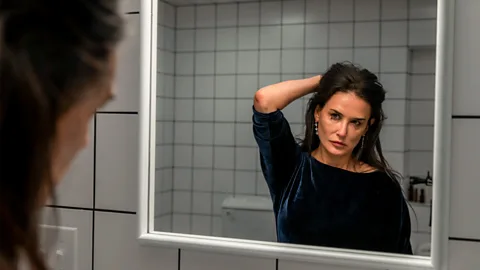The Substance: Why this gross-out body horror about Hollywood beauty standards is 2024's most divisive film
Miriam Balanescu
 Mubi
MubiNo one who watches this twisted Demi Moore film about a special anti-ageing treatment will forget it. But is it a feminist masterpiece or shallow, misogynistic and exploitative?
In The Substance, the much-discussed, opulently stylised and lavishly gory gonzo horror from French director, Coralie Fargeat, a disembodied voice playing over a marketing video for a tenebrous new beauty product asks: "Have you ever dreamt of a better version of yourself – younger, more beautiful, more perfect">window._taboola = window._taboola || []; _taboola.push({ mode: 'alternating-thumbnails-a', container: 'taboola-below-article', placement: 'Below Article', target_type: 'mix' });
